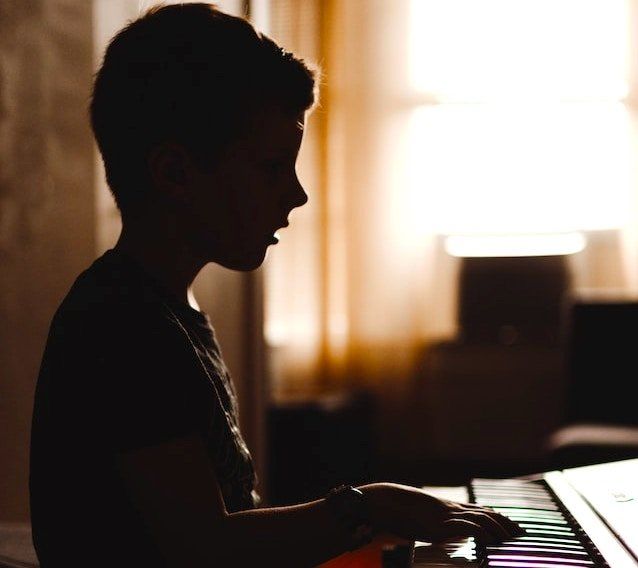
Expressing Emotions Through Music: A Positive Outlet
Nothing except music could have such an amazing ability to touch our souls, evoke emotions, and provide expression when words fail! It’s particularly helpful for children who struggle to communicate their feelings. Music serves as a positive outlet for emotional expression, offering an effective way to convey emotions.
Playing an instrument is a powerful means of expressing emotions through music. Children can channel their feelings into melodies, rhythms, and sounds they create. Whether it’s guitar, piano, or percussion, making music becomes a personal and intimate expression of their emotions. Through the notes they play, children convey emotions that are hard to put into words. This outlet provides a healthy release, comfort, and empowerment.
When Should Children Begin?
If you have searched Google for: “What age to start piano lessons?” or something similar, you’ll find some conflicting opinions, as it’s hard to recommend the same starting point for all children. Children can begin expressing emotions through music from a very young age. As they develop their skills, their ability to express emotions expands. Creating a nurturing environment encourages children to explore music at their own pace.
We will typically recommend that kids five and under participate in group classes as they build their confidence and understanding of music. Individual lessons are recommended for kids five and older, depending on dexterity and whether or not they can comfortably participate/pay attention through 30 minutes of instruction.
Listening to music is also valuable for emotional expression. Certain songs resonate deeply, mirroring our experiences. Children find solace and understanding in music that speaks to their feelings. Lyrics, melodies, and atmosphere provide validation.
Expressing Emotions Through Music: The Guitar and Piano
Guitar lessons for kids are rewarding, introducing them to music and emotional expression. The guitar’s versatility allows children to experiment with different styles and adapt to their emotions. From gentle strumming to energetic chords, the guitar becomes an extension of their emotions. It boosts their confidence and allows them to express their unique experiences.
Similarly, piano lessons offer children time to express emotions through music. The piano’s range and expressive capabilities make it suitable for conveying various emotions. Even at a young age, children can learn to express their feelings through the keys. Soft melodies or dramatic compositions become a medium for emotional release and self-expression.
Expressing Emotions Through Music – It All Starts With Support
Let’s encourage our little ones to embark on this musical journey! Whether finding music classes for kids or guitar lessons, let’s embrace the power of music to inspire and uplift. There’s no specific age for piano lessons—whenever they show interest! By supporting their musical passions, we boost their confidence and create a harmonious soundtrack for their lives.
Check out our testimonials page to learn more about our music education programs and how music can change your child’s life!